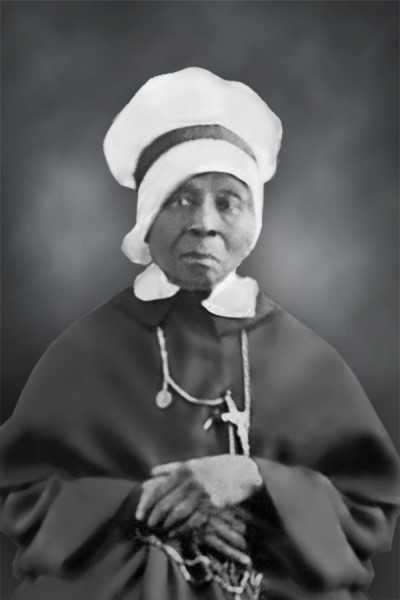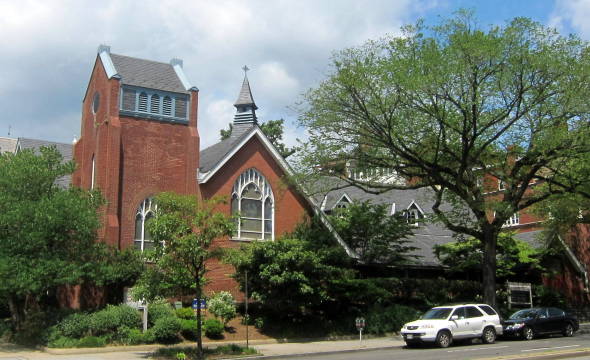 By all accounts, Mother Mary Lange was a holy woman. She was also a revolutionary in every way that a visibly Black nun ministering in the slaveholding and racially segregated U.S. South and Roman Catholic Church could be during her pioneering tenure in religious life. Radical and loving, Mother Lange refused to accept racism and sexism.
By all accounts, Mother Mary Lange was a holy woman. She was also a revolutionary in every way that a visibly Black nun ministering in the slaveholding and racially segregated U.S. South and Roman Catholic Church could be during her pioneering tenure in religious life. Radical and loving, Mother Lange refused to accept racism and sexism.
On September 20, 1835, Mother Lange — then a 40- or 50-year-old consecrated religious living in Baltimore, Maryland, who could speak French and Spanish fluently — penned a letter to Father Louis Regis Deluol who was the slaveholding superior of the Sulpician priests in the United States. She accepted his request to have two members of her community assume the management of the domestic and infirmary duties at the nation’s first Catholic seminary in nearby Emmitsburg, Maryland. Although her small community of nuns, called the Oblate Sisters of Providence, was a teaching order and descended from enslaved and free Catholics from the United States and the Caribbean, their subordinated status as poor Black women in America’s brutal slave society and the slaveholding Roman Catholic Church left them few options beyond accepting Deluol’s request.
Nonetheless, Mother Lange courageously demanded recognition of her members’ consecrated status as women religious and protection as they prepared to undertake the perilous work among the slaver priests and priests-in-training at their historic Catholic settlement at Mount St Mary.
Unlike most of their counterparts, Lange and her Oblate sisters did not enslave people. They also did not employ racial or class barriers to admission into their congregation or their schools.
Although the existence of her community of Black sisters was deemed a “profanation of the habit” by members of Baltimore’s slaveholding clerical community, Mother Lange transformed her school, soon called St. Frances Academy, into Baltimore’s first formal Catholic school open to Black children, free and enslaved. Her multiethnic and multilingual sisterhood also began preserving the vocations of other devout Black Catholic women who evidenced a revolutionary commitment to Black education and call to religious life in the slaveholding church.
In perhaps her most radical and loving move, Lange decided that her community would not accept the racist and sexist stigma that a woman born into slavery lacked the virtue necessary to enter religious life. Before abolition, the Oblate Sisters of Providence admitted into their ranks at least eight women born into slavery.
When Pope Francis formally decreed that Lange had lived a life of virtue and advanced her cause from servant of God to venerable on June 22, 2023, just three months after he repudiated the Doctrine of Discovery, which in the 15th century authorized European invasions of Africa and the Americas and facilitated the enslavement of millions
of Africans and Native Americans, he officially linked Lange to the long Catholic struggle against the sin and scourge of white supremacy, misogynoir, and segregation in the modern church.
Mother Lange’s extraordinary journey in our church illuminates the often-erased African foundations of American Catholicism, the transnational dimensions of African American Catholicism, and the central roles that Black women and girls played in the making of U.S. Catholicism—especially the tradition free from the most virulent aspects of white supremacy.
Written by Shannen Dee Williams
![]()


/cdn.vox-cdn.com/uploads/chorus_asset/file/15786728/facebook-video.0.1462601647.jpg)